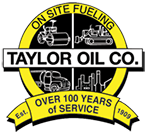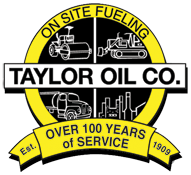Suspending the Federal Excise Tax through 2021 for Heavy Duty Commercial Truck Purchases – As policymakers begin debating future economic stimulus packages as part of COVID-19 recovery plans, they believe suspending the federal excise tax (FET) through the year 2021 for purchases of new heavy-duty commercial truck purchases will bring immediate and recognizable results. They also believe it will work toward restoring and expanding domestic manufacturing jobs, increasing productivity of truckers and reducing emissions for communities all over the country.
Since the pandemic first began here in earnest in March, the important role of the nation’s trucking industry cannot be ignored. The men, women and trucks on the roadways have been working round the clock to stock grocery store shelves and deliver necessary medical supplies and personal protective equipment (PPE).
A Much-Needed Boost
Now, elected officials are presented with a big opportunity to give the trucking industry a much-needed boost by suspending the FET through 2021, which adds an average of $22,000 to the cost of a single new class-8 big rig. Consequently, this drives the price tag up exponentially, putting this type of purchase out of reach for many fleets and truckers who already operate on slim profit margins. Adding insult to injury, they don’t always have easy access to credit or affordable financing.
Modernized Truck Fleets
The opportunity to modernize truck fleets looms large. Truck sales in this country are estimated to decline by 50 percent this year alone. The latest DTF analysis of data says that more than half of all class 8 trucks in operation today are more than 10 years old, pushing the fleet age even higher.
Diesel engines – historically the workhorse of the trucking industry — power more than 95 percent of some of the largest tractor trailer trucks. Truckers who have these older model vehicles have been missing out on a generation of improvements when it comes to fuel efficiency, near-zero emissions technology and a variety of safety enhancements.
An Integral Part of Recovery
Suspending the FET to ensure more new trucks are put on the road is a reasonable part of any recovery plan, particularly when it comes to green recovery plans designed to deliver important economic and environmental benefits in the short-term. There are lots of ideas circulating right now, and policymakers recognize the need to start balancing the need to help today’s recovery with funding tomorrow’s future. State of the art technologies can bring big benefits today but they have to be compared and contrasted with technologies that are more long-term in nature and that may not be commercially available.
Commercial vehicles are capital investments with longer life spans, unlike simple cars. Often times, trucks offer a useful life of more than 20 years before they are put out to pasture, powered by engines that accumulated more than a million miles and that have rebuilt several times over. But even as trucks are known for their durability and longevity, they are not using the latest and cleanest generations of technology. In fact, the most recent near-zero emissions tailpipe standards for commercial trucks were put into place 10 years ago.
With access to the newest generation of clean diesel technology, a new truck replacement today could do away with more than 250 pounds of fine particle emissions and 10 tons of greenhouse gas emissions!
Statistics show that half of the fleet that uses the latest generation clean technology has eliminated one million tons of fine particle emissions, which is equal to taking all vehicles off U.S. roadways for 33 years.
Some Stats to Consider
- Cleaner fuel and engines that use advanced technologies reduce nitrogen oxide emissions by 97 percent and particulate matter emissions by 98 percent.
- Since 2010, fuel-efficient diesel trucks have saved 101 million barrels of crude oil and cut back on CO2 emissions by 43 million tons.
Truckers are encouraged to invest in technologies that can start working and deliver real benefits today. Increasing truck sales by suspending the federal excise tax on commercial truck purchases on a temporary basis is an ideal method of spurring demand for U.S. truck production. It can also increase employment and help out truck dealers who support local communities while they generate significant, long-lasting clean climate benefits.
Contact Taylor Oil
From onsite fueling to emergency mobile service, Taylor Oil consistently helps truckers stay on the roadways so they can do their jobs efficiently. To learn more, contact us for service anywhere in the Northeast.


